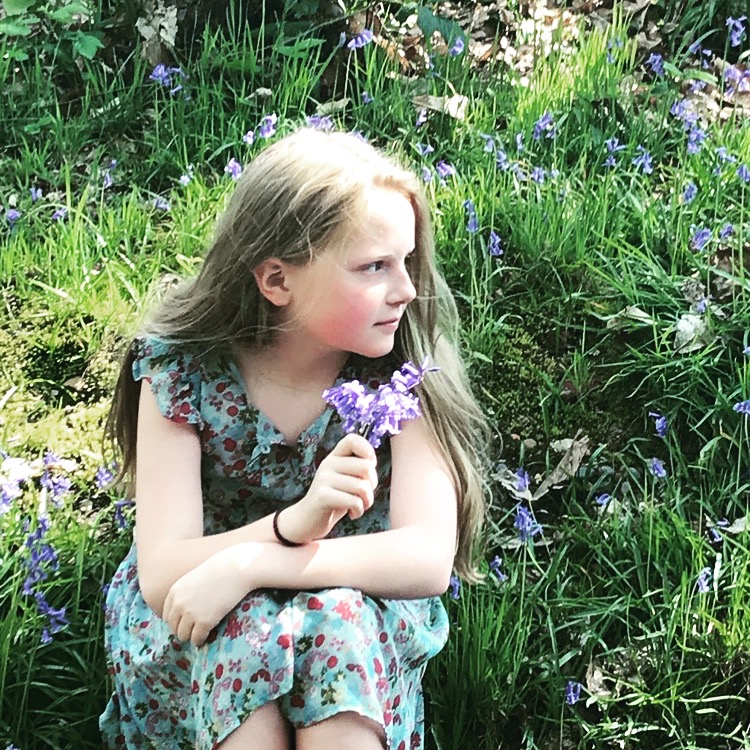If the concept of the ‘inner child’ all sounds a bit woo-woo to you, you’re not alone. At my first meeting with my therapist, in the midst of a complete mental breakdown, begging for help, I remember her gently explaining I had CPTSD, and needed to heal and reparent my inner child.
She went on to ask me to picture myself as a child, describe what I was wearing, how I was feeling, and imagine ‘little me’ sitting on my lap, while I asked her what she needed.
I remember despairing. I needed professional help to sort out my mind, and here I was, playing silly games, asking an imaginary childlike ‘me’ what she liked to eat. I left feeling that my therapist was possibly more in need of help than I was.
But, lacking any better ideas myself, I persevered out of desperation. As the weeks went on, and following the reparenting exercises to the letter, I started to heal. I began to realise just how low my self-worth had always been. I noticed how I always reacted to people and situations, instead of responding. I even began to see how certain events threw me immediately back to something that had happened in my childhood, thrusting me straight into a trauma response.
I learnt that the reason I kept entering abusive relationships, was my subconscious attempt to ‘resolve’ the abuse cycle I had got stuck in as a child. Until I healed my own trauma, I would always be attracted to either abusive or emotionally unavailable partners. Trying to ‘fix’ them, make them love me in the places I hadn’t been loved. I needed to learn how to love myself in those places.
I gradually realised the childhood I had experienced had been very problematic, and I got angry. Angry at others for letting this happen to me. Lashing out, blaming my parents. Attacking myself for how I had got so much ‘wrong’ with my own daughters. Gradually, slowly processing the anger until I reached a place of acceptance and forgiveness. We are all doing the best we can at the time. When we know better, we do better.
As JK Rowling says, ”There is an expiry date on blaming your parents for steering you in the wrong direction; the moment you are old enough to take the wheel, responsibility lies with you.”
The inner child is a concept that comes from the infamous psychoanalyst, Carl Jung. Jung introduced the idea of the archetype that we share in a collective unconscious called the divine child.
Essentially, our inner child is the forgiving, free-spirited part of us that still feels and experiences life as a child. But, just as it carries the positive aspects of being a child (like innocence, joy and creativity), it also carries the wounding of our past.
These wounds might be caused by physical or emotional abuse, bullying or growing up in a broken family, for example. And it’s not just in an abusive or neglectful childhood. Even if they meant well, overprotective parents may have held you back by wrapping you in cotton wool, metaphorically speaking. Because of this, later in life, you may have found it difficult to identify — let alone voice — your needs.
I have come a long way since that day I found myself seated in a tiny counselling room, shaking, crying and desperate for help, but also desperate to leave, feeling like I was in a parallel universe with an imaginary ‘me’ in tow.
Now, as I have trained to become a therapist myself, and completed many courses on trauma and inner child work, I watch people with interest and can literally ‘see’ when their inner child takes over. Most people are reacting from their child in everyday interactions without even realising. It’s quite a revelation!
Inner Child Healing can:
Uncover and heal any repressed emotions you experienced growing up.
Identify the root cause behind any phobias or unhelpful patterns.
Boost your self-esteem and show yourself self-compassion.
Incorporate self-care into your day-to-day life.
Tap into your fun, creative and playful side.
How to begin:
- Journal, journal, journal! At the end of each day, write down the interactions you have participated in throughout the day, and notice how you reacted. Note what you could have done differently, if anything. What were you feeling? All feelings/emotions come from our ‘child’. Can you think of a time in your childhood you felt this way?
- Allow yourself to feel. We distract ourselves with work, exercise, busy busy busy, or more destructive distractions like myself – alcohol, abusive relationships, substance abuse.
- Give yourself permission to be imperfect. We are all human. Nobody is perfect.
- Learn how to set and maintain boundaries.
- Write down some positive affirmations and say them out loud every day. Put your hand over your heart and tell yourself you are loved. You are beautiful. You are open to being loved.
- Give yourself praise for how far you have come. Even if all you have done so far is survive, you are here now, and it is time to start living!
“Give me a child until he is 7 and I will show you the foundations of the man”. Aristotle


9 Replies to “Reparenting Your Inner Child”